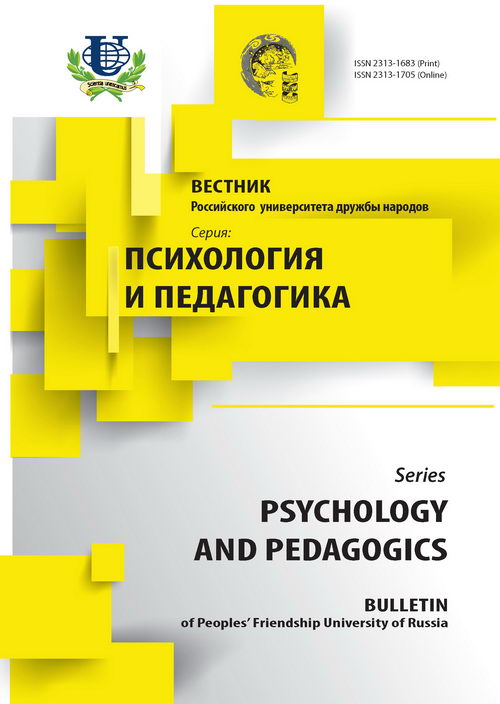Emotional and Cognitive Self-Regulation
- Authors: Matthews G1, Kustubayeva AM2, Tolegenova A2, Kamzanova A2, Zholdassova M2
-
Affiliations:
- University of Cincinnati
- Al-Farabi Kazakh National University
- Issue: No 2 (2013)
- Pages: 76-86
- Section: Articles
- URL: https://journals.rudn.ru/psychology-pedagogics/article/view/7756
- DOI: https://doi.org/10.22363/2313-1683-2013-2-76-86
- ID: 7756
Cite item
Full Text
Abstract
Keywords
About the authors
G Matthews
University of Cincinnati
Author for correspondence.
Email: Gerald.Matthews@uc.edu
Department of Psychology
A M Kustubayeva
Al-Farabi Kazakh National University
Email: almkust@gmail.com
Кафедра общей и этнической психологии
A Tolegenova
Al-Farabi Kazakh National University
Email: aliyatts@mail.ru
Кафедра общей и этнической психологии
A Kamzanova
Al-Farabi Kazakh National University
Email: kamzanova@gmail.com
Кафедра общей и этнической психологии
M Zholdassova
Al-Farabi Kazakh National University
Email: manzura-7@mail.ru
Кафедра общей и этнической психологии
References
Supplementary files














